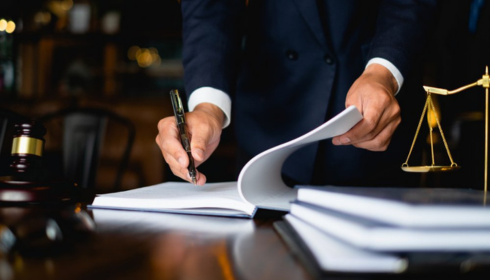Why Expert Witnesses Can Make or Break a Legal Case

If you’ve ever found yourself tangled in the web of a complicated legal matter, you already know how overwhelming it feels. Courtrooms aren’t just about lawyers arguing passionately; they’re also about evidence, credibility, and — often overlooked — the testimony of experts who know their subject inside out. These individuals, called expert witnesses, can shift the direction of a case with just a few well-grounded statements. But understanding how to work with them, how much they cost, and where to even begin looking is a journey of its own.
The Role of Expert Witnesses in Modern Litigation
Think of expert witnesses as translators. They take complex technical, medical, financial, or scientific jargon and break it down so a judge or jury can understand. Without them, many cases would float in ambiguity. Whether it’s a physician explaining why a treatment was mishandled or a financial analyst digging into suspicious transactions, expert witnesses bring clarity to a courtroom that thrives on uncertainty.
The tricky part? Knowing where to find the right person for your specific case. It’s not as simple as opening a directory. Some consultants have years of niche experience, while others might only dabble in court appearances. If you need to find an expert consultant for legal case, it’s worth investing time in research rather than grabbing the first name that pops up on a Google search.
Why Fees Are More Complicated Than They Look
Now, let’s talk money — the part everyone wants to skip until the invoice lands on their desk. Hiring an expert isn’t like calling a plumber for a fixed-rate job. Their compensation varies widely based on expertise, reputation, and the complexity of your case. Some charge for preparation hours, depositions, and even travel. Others may only bill for time spent actually testifying.
One of the most common models revolves around expert witness fees per hour, which can range from a few hundred dollars to well over a thousand. It’s not unusual for seasoned experts — those who’ve testified in high-stakes corporate disputes or medical malpractice cases — to charge premium rates. And honestly, when the stakes are millions of dollars or even a person’s freedom, cutting corners on expertise rarely pays off.
The Subtle Art of Selecting the Right Expert
Here’s where strategy comes in. It’s not enough for an expert to simply know their subject; they need to communicate it persuasively. Imagine an engineer who can design bridges in their sleep but stumbles when asked a direct question in court. Or a doctor who knows everything about cardiology but gets flustered under cross-examination. Both might be brilliant, yet not effective in a trial setting.
This is why lawyers spend significant time interviewing potential experts before bringing them into a case. They look for clarity, confidence, and the ability to withstand the pressure of aggressive questioning. After all, juries don’t just listen to facts — they read body language, tone, and demeanor. The right expert must be a teacher, performer, and authority figure all at once.
Trusted Networks vs. Going Solo
There are two main paths when you’re in search of an expert: hunting on your own or leaning on established networks. Going solo might seem tempting — you have control, and maybe you stumble upon a hidden gem. But it can also be exhausting, and you risk hiring someone who lacks courtroom experience.
On the other hand, curated networks or professional groups save time and provide assurance. For example, some directories maintain vetted rosters where you can review backgrounds, prior case involvement, and testimonials. If you’ve ever scrolled through the Litili Group expert witness list, you’ll notice it’s not just a jumble of names — it’s a structured resource designed for efficiency. Such lists act as a bridge, connecting attorneys with individuals who’ve proven themselves under oath.
Case Preparation: It’s More Than Just Hiring
Bringing an expert on board is only half the battle. The real work begins when they start collaborating with your legal team. They need access to records, evidence, and case strategy. They may draft reports, prepare demonstratives for trial, or conduct independent research. This isn’t a “hire and forget” relationship — it’s an ongoing partnership that requires alignment and trust.
It also demands transparency. Clients sometimes hesitate to disclose every detail, fearing it might weaken their case. But experts can only build strong testimony if they’re armed with the full picture, including the messy parts. Lawyers often emphasize this: your expert is on your side, but only if you give them the tools to defend you.
The Emotional Weight Behind the Process
Beyond the strategy, money, and logistics, there’s a human layer to all of this. Legal battles are stressful, emotionally draining, and often life-altering. Having an expert who calmly explains technical issues can be grounding not only for the court but also for you as the client. Their clarity can strip away the fog of jargon and make you feel like you finally understand what’s happening.
That sense of reassurance is priceless. While lawyers argue the law, experts illuminate the facts, and together they create a path through the chaos.
Wrapping It All Up
At the end of the day, hiring an expert witness isn’t just another step in legal preparation — it’s a cornerstone. The right person can bring authority, clarity, and credibility to a case that might otherwise feel like a maze. Yes, it comes at a cost. Yes, it takes careful vetting. But when the stakes are high, the investment often pays for itself.
So, whether you’re exploring directories, leaning on curated groups, or simply trying to understand how much to budget, remember that experts aren’t interchangeable. Each brings a unique mix of knowledge and courtroom presence. Choosing wisely could be the difference between stumbling in confusion and walking out with confidence.
Leave a Reply
You must be logged in to post a comment.


Leave a Comment